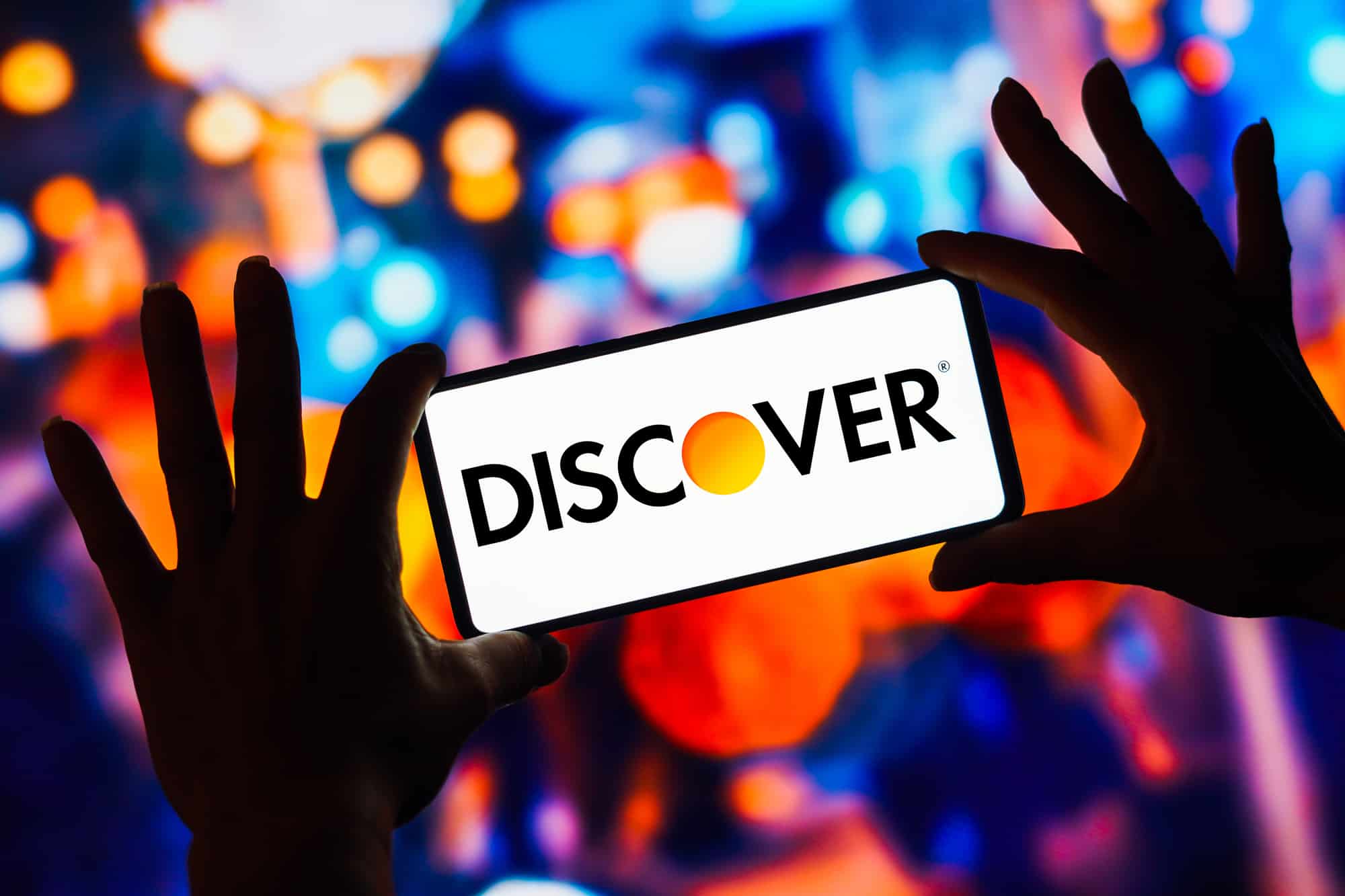You’ve decided that consulting is the career for you, and you’re getting ready to apply for an internship or even a full-time role at one of the top consulting firms around. Or, maybe you’ve already applied and landed a coveted consulting interview! Either way, are you prepared to handle any and all of the consulting interview questions that come your way?
No matter how you feel about your interview prep, this guide will give you all the confidence you need to prepare for a consulting interview.
Types of Consulting Interview Questions
The consulting interview process generally has two components: the case interview and the fit interview.
The case interview is usually first. You’re presented with a business problem (called a “case study“) and asked to solve it in front of your interviewers. In most consulting interviews, you’ll do two rounds of case interviews back-to-back (or round-robin), though there can be more than two.

Introduction to Strategy Consulting
See what it's like to work in strategy consulting in this free course from BCG. Develop your creative thinking skills, learn how to brainstorm with clients, and more.
Avg. Time: 1-2 hours
Skills you’ll build: Critical thinking, creativity, brainstorming
In each case interview, you meet with at least two people for approximately 45 minutes. The first 10 or so minutes are for introductions and small talk. The remainder of the time is spent on the case study. Keep in mind that you won’t necessarily have the consulting interview questions in advance, or a calculator to work out the math.
The second part of a consulting interview process is the fit interview with a partner. They’ll ask you less technical consulting interview questions such as, “Why did you apply to this firm?” or “Why do you want to go into consulting?”
Why Are Consulting Interviews So In-Depth?
First, case interview questions are essentially behavioral interview questions. But instead of asking for an example of how you handled a situation, you’re demonstrating how you solve problems, giving the interviewers insight into how you might approach similar challenges on the job. This helps them see how confident you are in your solutions, how well you might handle client objections, and how graceful you are under pressure.
Second, the fit interview helps the company understand why you applied and helps you gauge if the company and that office is right for you. This is important because, as Alastair McKee, strategy and operations principal at Google, Forage program development partner, and former consultant at Bain notes, “They do not want to give you an offer if they don’t think you’re going to take it.”

Financial Services: Climate Change
Act as a climate change consultant in this free course from Oliver Wyman. Create a plan for your client to reach net-zero emissions by 2030.
Avg. Time: 4-5 hours
Skills you’ll build: Research, critical thinking, communication, data analysis
Consulting Interview Questions: Where to Start Your Prep Work
McKee says that to prepare for any consulting interview question, “You have to practice this stuff [solving case interview questions]. A lot.”
Of course, there’s more to it than “practice, practice, practice.” McKee also says you should start your prep work long before you’re scheduled for a consulting interview or even before you apply for a position. If you show up without any preparation, you’re either “a very lucky genius, or you’ll be heavily embarrassed and stand no chance at all.”
To prepare for any and all types of interview consulting questions, start with research. Make sure you have a clear idea of what a consultant does and doesn’t do, as well as what kind of consulting the firm does. For example, you don’t want to talk about how much you want to work in cybersecurity consulting when the firm specializes in tax and audit consulting.

Cyber Security Consulting
Try your hand at cybersecurity consulting in this free course from PwC. Learn how to work with clients, perform a risk assessment, and more.
Avg. Time: 4-5 hours
Skills you’ll build: PowerPoint, networking, business judgment, document review
From there, you want to enhance the skills you’ll use during the interview and on the job. Those include:
- Improving your mental math (since you won’t have a calculator)
- Keeping up with market trends and industry news
- Storytelling — as you walk the interviewers through your solution, you need to structure your answer with a logical beginning, middle, and end
- Creating hypotheses from business data
- Asking deep, meaningful questions — the interviewers are happy to answer your questions but they don’t want to give you the solution
- Explaining your solution because you can’t assume the interviewers (and ultimately, clients) will understand how you got there
- Being comfortable with long silences while you come up with an answer
McKee says that preparing for his consulting interview “consumed him for months” and that trying to prep for consulting interview questions on your own can be very difficult. Instead, try to connect with classmates who are also prepping for their interviews or talk to someone who’s already been through the process.
“At school, you probably have other people who are going through the same things. And some schools have consulting clubs [that focus on preparing] or will bring in people to help you prep. But if you’re at a school without these resources, networking can help. You can say, ‘Hey. There’s no consulting club at my school. I don’t know where to start to get ready.'”
And if you’re unable to connect with anyone who can help you out, go straight to the companies. Many have tips and tricks on their websites, and some even have case interview questions you can use for practice. For instance, Deloitte has an interactive tool that allows you to practice several types of case interview questions as many times as you like.
One other thing to keep in mind as you’re preparing for consulting interview questions is that everyone preps! So, part of your prep work must include something that will differentiate you from all the other candidates. Ideally, that’s finding a way to let your personality shine through while you’re solving the problem and demonstrate why clients will want to work with you.
And if you do the prep work for consulting interview questions but don’t land an interview, that’s OK. McKee says that there’s still a benefit to going through the exercises because you’ll learn a lot that will help you professionally, no matter where your career takes you.
How to Answer Case Interview Consulting Questions
McKee sums up the case interview part of your consulting interview like this: “You solve the problem and present a really good answer as if I were the client.”
Simple, right?
Well, not exactly (but you probably knew that). So, let’s start at the beginning.

Digital Assurance & Transparency
Experience working as a digital assurance consultant in this free course from PwC. Evaluate your client's risk and control process, document the initial testing, and more.
Avg. Time: 3-4 hours
Skills you’ll build: Control risk assessment, deficiency analysis, control testing
In general, your interviewers are trying to see how you connect the dots and create an action plan. Specifically they want to see your strength in these areas:
- Strategic thinking
- Analytical ability
- Common sense
- Creativity
Keeping those in mind, let’s walk through McKee’s example and advice.
The interviewer will give you the set-up and problem: “Imagine you’re working in X industry, and the client wants you to solve Y problem. How will you do that?”
Now, instead of rattling off the first answer that comes to mind, take your time. In the case study portion of a consulting interview, it’s normal, acceptable, and even expected that there will be silence as you think. So, take as much time as you need to answer (without going over time, of course!).
Tell your interviewers you need a few minutes to develop a plan. Then, write out your approach on paper. It should be structured and logical. You’ll want to define the different areas you need to investigate, the kinds of questions you need to ask in each of those areas, and the data you need to collect to help you solve the problem.

Career Catalyst Program: Advisory
Test your consulting skills in this free course from KPMG. Learn how to clean and interpret data, summarize insights, and more.
Avg. Time: 4-5 hours
Skills you’ll build: Data literacy, creative thinking, hypothesis-driven thinking, Excel
After formulating and writing out your plan, turn to your interviewers and say, “I’m going to solve the problem by looking at X, and the data I’ll need is Y.”
That’s a simplified version, as you’ll probably have a number of questions you need to ask to obtain the data. But remember that in this instance, the interviewer is your “client,” so as you’re walking them through how you’ll solve the problem, you’re asking your interviewers the questions you’d ask your client. And if you’re asking the right questions, you’ll get the data you need to solve the problem because your interviewer has it.
With the data in hand, you’ll analyze it, then do some calculations — without a calculator — and explain your results. And the math must be “perfect,” says McKee. “If your math is wrong, you’re out.”
However, even when your math is “flawless,” the interviewer may challenge you. McKee explains:
“Now, your math might be right, but I might put some pressure on you because I want to see how you’re going to respond under pressure. And you might second-guess yourself, but if you crumble, that doesn’t look good.”
What’s more, your math might be incorrect, and the interviewer may question you about it to see how you handle the situation.
Case Study Interview Question Example
Here’s one of the questions McKee was asked during his consulting interview and how he answered it. It’s a market sizing question, a very common type of case interview consulting question where you estimate the size of a market based on annual revenue or units of an item sold.

Climate Change and Sustainability
Learn more about climate consulting in this free course from EY. You'll learn how to set benchmarks, develop solutions, and more.
Avg. Time: 2-3 hours
Skills you’ll build: Data analysis, report development, problem solving, critical thinking
The question was, “How many liters of vodka are sold in Poland every year?”
You probably have no idea how many liters of vodka are sold in Poland every year, and while I can Google the answer (99 million in 2021), you can’t do that in your case interview. Instead, you need a methodical approach to find the answer. And that answer has to be well-reasoned, well-communicated, and make mathematical sense.
To figure this out, you’ll make assumptions about each of the variables you need to solve the problem. The trick is to make your assumptions reasonable, but use numbers that are easy to work with.
Here’s what McKee did:
“Start with the population of Poland. I don’t know the population, but I’m going to assume it’s about 50 million. Now, I chose that number and not 47 million because it’s a lot easier to do the math on 50. And then, of that 50 million, I assume 30 million will be of drinking age, and I assume that 50% of them are vodka drinkers. And from there, you make more assumptions. How often do they drink? How much do they drink each time? I choose an easy-to-work-with number for each assumption. I don’t say people have three drinks a week because the math is harder, so I’ll say they have five drinks a week.”
What you’re doing is making assumptions that are probably wrong but seem reasonable, which is perfectly OK. The interviewers aren’t looking for something that’s factually accurate. They want an answer that makes sense directionally to see how you problem-solve.
Using the example above, you start with a number that sounds reasonable for Poland’s population, then a number that sounds reasonable for people who are allowed to drink, and so on and so on. Then, it’s just doing the mental math to arrive at a reasonable answer.

Social Impact
Help your client improve diversity in its supply chain in this free course from BCG. Plan the project, summarize insights from surveys, and more.
Avg. Time: 3-4 hours
Skills you’ll build: Planning, critical thinking, summarization, organization
How to Answer Consulting Interview Questions in the Fit Interview
With the case interview questions over, you can exhale, but the interview isn’t over yet. Now, it’s on to the fit interview questions.
While I’m not going to say these are easier, they are the kinds of consulting interview questions you can prepare for. Likely questions can include:
- Why do you want to work in consulting?
- Tell me something that’s not on your resume.
- Tell me about a time you worked cross-functionally.
- Tell me about a time you and a teammate didn’t agree on something.
- How do you make a decision when you don’t have all the facts?
- What industry trends do you follow and why?
- How do you handle working on multiple projects with similar due dates?
There will likely be an interesting mix of common interview questions and behavioral interview questions that you should be ready for. However, below are two common fit interview questions that require thoughtful and well-prepared answers.
Why do you want to work in this office?
The large consulting firms have companies around the world, and as you apply for openings, you often specify which location you want. You may pick one (say, New York), or you might apply for a role in three locations and rank them (New York, Dallas, Charleston).
As noted above, the company doesn’t want to extend an offer unless they’re 100% positive you will take it. So, one of the fit interview questions will likely be, “Why the [this location] office?”
You need a good explanation why you’re interested in that office location over any of the others. It’s similar to asking, “Why did you apply to our company?” (and you’ll probably be asked that, too), but you need to make your case for why you applied to this location.
Authenticity is critical here, as is honesty, but you don’t want to be too honest. You can talk about how you know someone who works in that office, and you’re hoping to work with them, or the fact that you have family in the area and want to be close to them.
But you don’t want to say, “Because I thought I stood a better chance of landing the role.” That’s not always the case, and it isn’t a good enough reason to hire you.
Tell me about a time you made a mistake.
This is a behavioral interview question, and the partner is asking to see if you can own up to a mistake without blaming others, and what you learned from it.
It’s not uncommon for interviewees to say, “I don’t make mistakes,” which just isn’t true. You want to talk about a time you erred, and not because someone else messed up. Then, explain what you learned and what steps you’re taking to improve.
Questions You Should Ask in Your Consulting Interview
At some point, you’ll get a chance to ask a few questions. This is the perfect time for you to find out if the firm, type of consulting, and location are good matches for your needs. Below are a couple of questions you should ask during your consulting interview.
How would you describe this office’s culture?
Company culture plays a significant role in how well you do your job and how happy you are at work. And while the company may have a culture, individual offices often have unique and distinct cultures as well.
So, while you should ask about the company’s culture, you need to drill into the details and find out what that individual office is like. For example, the company’s culture may be heads-down, work hard all day every day, but the office’s culture may be one that cuts loose at 3:00 p.m. on Fridays. That’s an important distinction.
What’s the one thing I should know about consulting at your firm?
There are a lot of details about the company you should know about before you take the role. But, asking for a single item could reveal details and insights you never thought about.
For example, you’re probably expecting the interviewer to say something about work-life balance (or the lack of it) because that’s very common in consulting. But they may say something like, “It’s really hard to date or maintain a relationship.” How does that change how you think about a consulting career at this particular firm?
What’s the hardest case you’ve ever worked on?
Though your interviewers may not be able to give you all the details, what they can tell you should give you some insights into what consulting life is really like. Did they struggle with a client? If so, was it because they were too demanding or had unrealistic ideas of what the consultant could do? Maybe the client just didn’t want to listen and got mad when things didn’t work out.
Again, the details may surprise you and give you more insight into the firm and role.
Prepare for Consulting Interviews Early and Often
Preparing for consulting interview questions is a lot. People spend months getting ready, practicing the math, figuring out the assumptions, and making sure they stand out to the interviewers — in a good way.
One other great way to build practical consulting skills is enrolling in a free Forage consulting virtual job simulation. You’ll see what it’s like to work in consulting, practice the skills you need for the job, and when you finish, you’ll unlock a resume snippet and interview talking points you can use throughout your job search.
Image Credit: Canva

